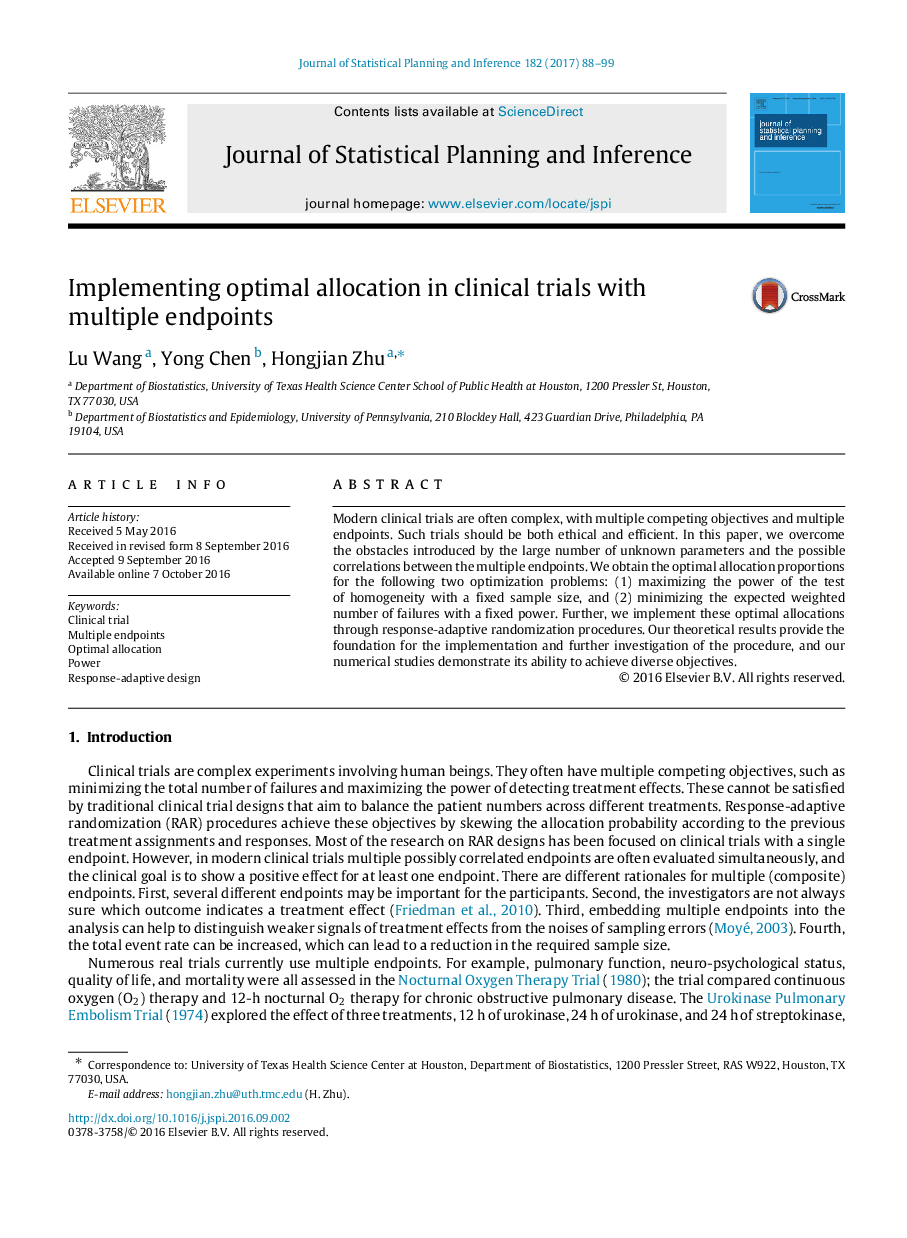| Article ID | Journal | Published Year | Pages | File Type |
|---|---|---|---|---|
| 5129511 | Journal of Statistical Planning and Inference | 2017 | 12 Pages |
â¢Clinical trials with multiple endpoints were studied.â¢Optimal allocation proportions for maximizing the power of the test of homogeneity with a fixed sample size have been derived.â¢Optimal allocation proportions for minimizing the expected weighted number of failures with a fixed power have been derived.â¢Response-adaptive randomization procedures were used to implement these optimal allocations and efficient and ethical advantages have been shown.
Modern clinical trials are often complex, with multiple competing objectives and multiple endpoints. Such trials should be both ethical and efficient. In this paper, we overcome the obstacles introduced by the large number of unknown parameters and the possible correlations between the multiple endpoints. We obtain the optimal allocation proportions for the following two optimization problems: (1) maximizing the power of the test of homogeneity with a fixed sample size, and (2) minimizing the expected weighted number of failures with a fixed power. Further, we implement these optimal allocations through response-adaptive randomization procedures. Our theoretical results provide the foundation for the implementation and further investigation of the procedure, and our numerical studies demonstrate its ability to achieve diverse objectives.
